Before we cheapen a long-form PSA for testicular cancer awareness with our animal lust for firemen, please note that testicular cancer is the most common cancer affecting young men, and it is responsible for 10% of all cancer deaths in men aged 15-35. According to CEwebsource.com, there has been a “clear trend toward an increased incidence of testicular cancer in the majority of industrialized countries in America, Europe, and Oceania.” And in Canada, “a 50% increase in the incidence rate of testicular cancer has been observed over the last 25 years.”
Your nuts are precious. Look after them, guys.
Which brings us to this awesome vid of a doctor leading a seminar teaching UK fire fighters how to check their scrotes for any signs of cancer. True, these are not the firefighters of your sexy firemen calendars. These are the real thing. There’s some old balls here. But it’s still kinda hot to me for a PSA. Real guys getting together and checking their nuts out. It’s male bonding and it’s sexy! Also, the guy in the green towel is working for me.
– J. Harvey
To watch, Follow the JUMP:


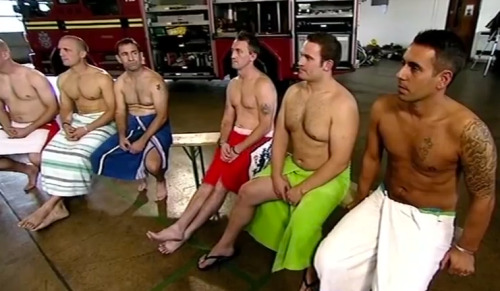
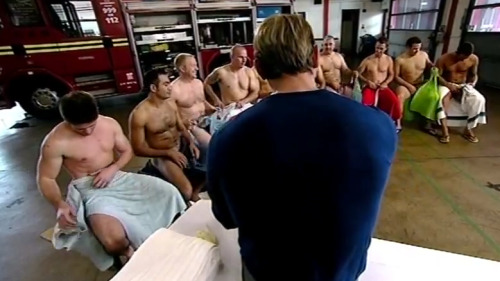
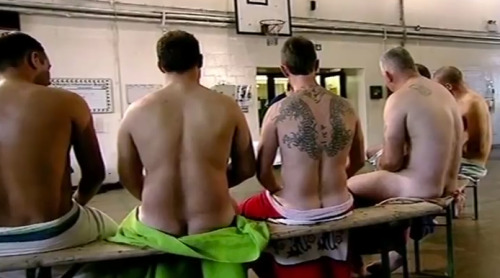
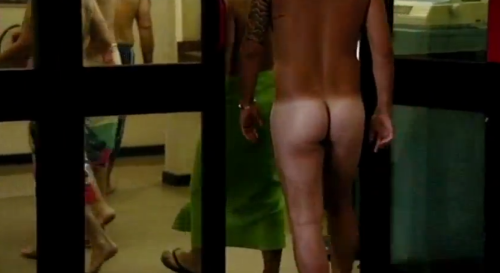

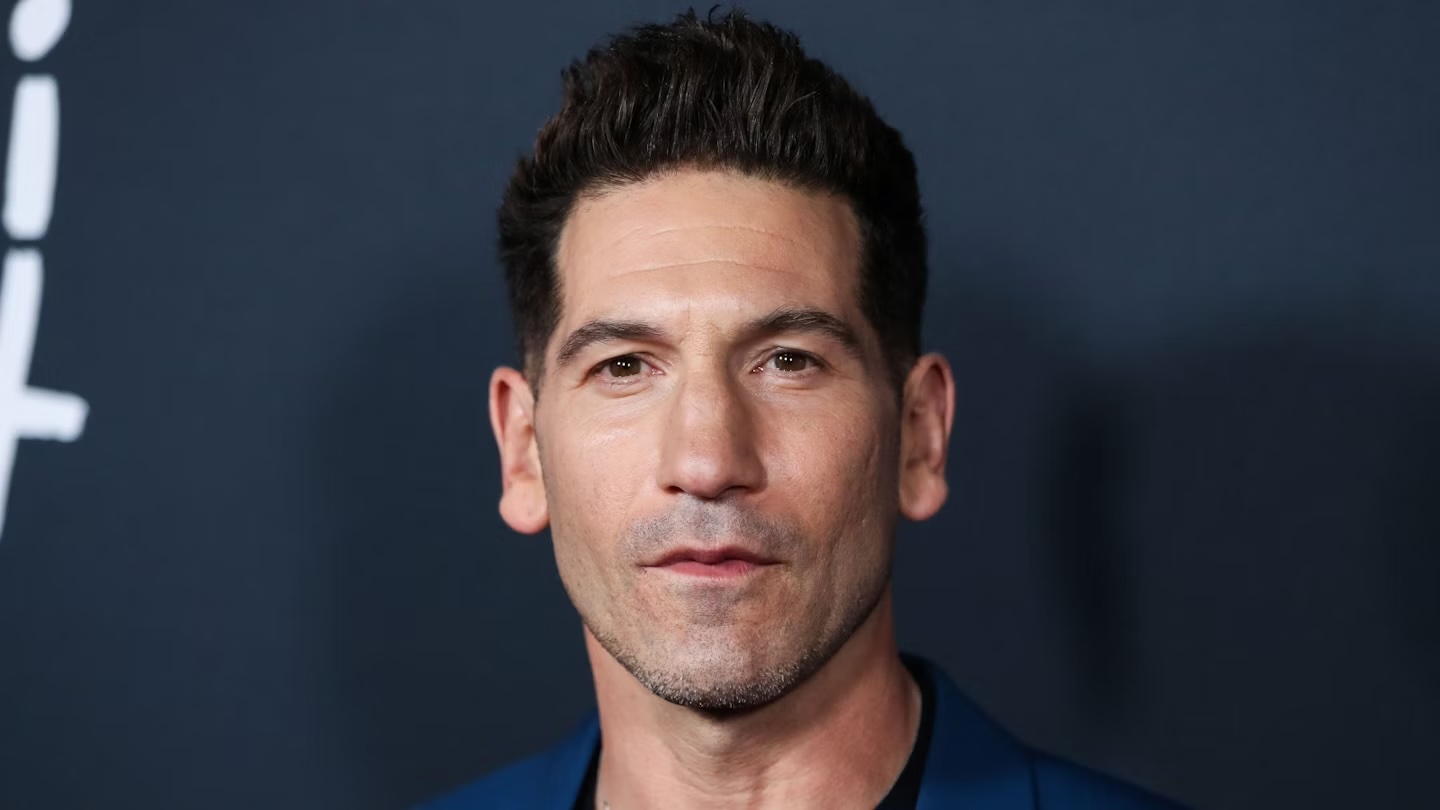
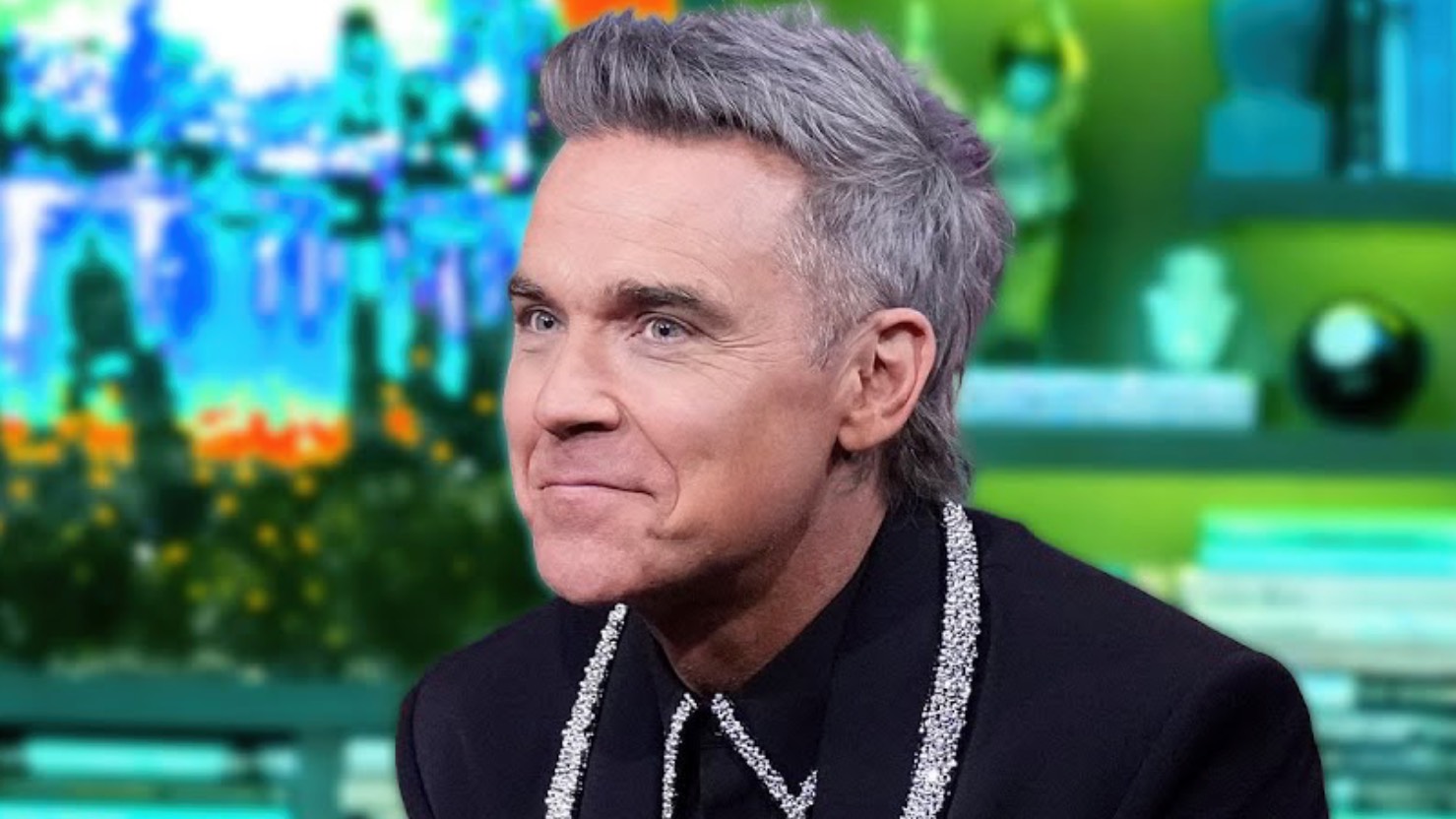
I wish I can watch this video right on my mobile phone. (hint, hint.. wink, wink)
shows like this are why the UK is awesome. this would never be on US tv, maybe hbo. plus that daddy bear is hot
shows like this are why the UK is awesome. this would never be on US tv, maybe hbo. plus that daddy bear is hot
this is serious business guys.
i’ll be sure to check my testicles later this evening.
with some assistance from the one second on the right.
;-).
this is serious business guys.
i’ll be sure to check my testicles later this evening.
with some assistance from the one second on the right.
;-).
Did anyone think the doctor reminded you of an old He-Man doll from the way his face was?
They did this before with a different group of guys ( and a few more shots of wiener)
http://www.youtube.com/watch?v=Z983TQ43z8s&feature=g-vrec here
I love Europe!
I find it sad that the US doesn’t have this type of indepth discussion about testicular cancer. When I was diagnosed 5 years ago, there wasn’t much information about it at all. What I was mostly told is, “Lance Armstrong had it.” Um, okay…that helps. Even the doctors I saw didn’t know much about it. All that is known is that you’re either born with it, as I was, or it’s environmental. When mine was found at 35, the tumor was only a few millimeters in size which is why it’s not easily identified. Support groups aren’t built around testicular cancer, so you’re mostly relegated to asking for help online. When I did find a general support group, people just kept referring to me as the “young one” and almost dismissing my cancer since it effects younger people. The whole experience was horrifying and I wish the US had more support for people working through the trauma of such a diagnosis.
Great PSA……..My doc always asks if i check myself…..If your’s doesn’t get a new doc….
I was diagnosed with Testicular Cancer in 2010. As soon as I noticed a lump I was down the doctors the next day. Within 3 weeks I had surgery to remove the tumor (which involves removing the affected testicle), then a month later I had chemotherapy. I’m pleased to say I have been 2 years clear now. The NHS here in the United Kingdom were fantastic, and I managed to get through it thanks to the support and love from family and friends.